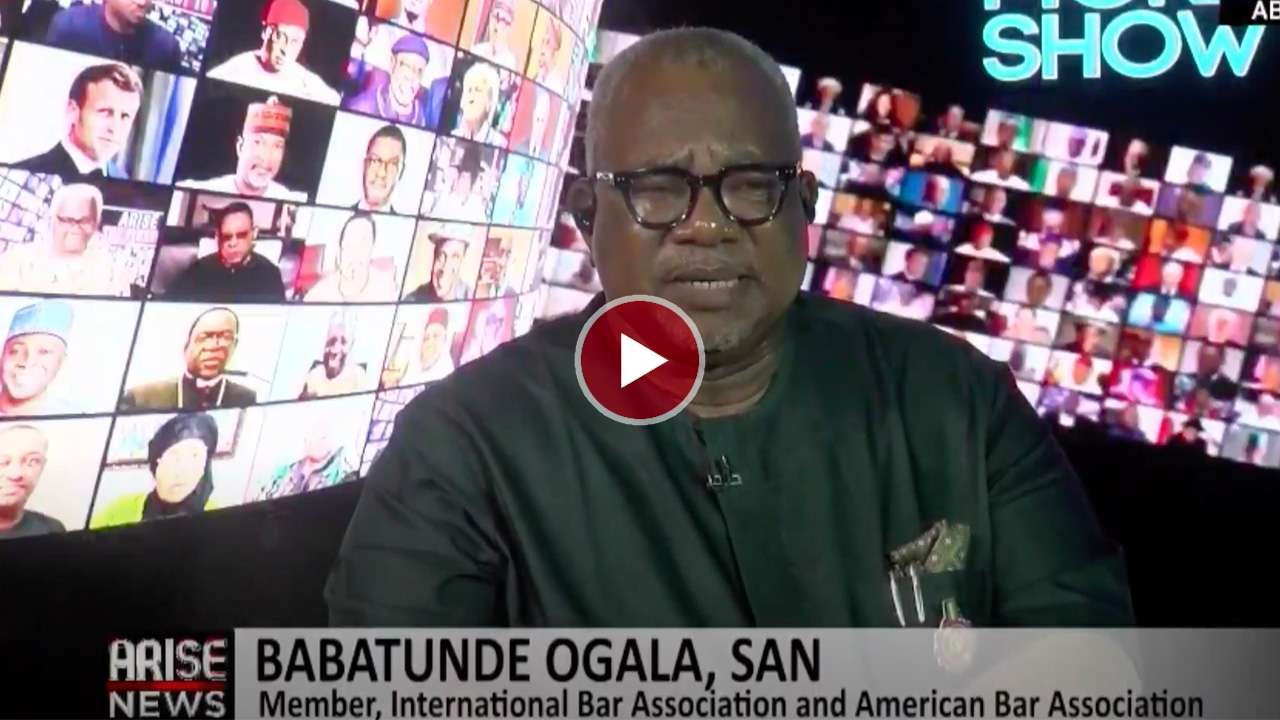Babatunde Ogala Denies Claims Linking Afe Babalola To Alleged Tinubu Agenda Against Dele Farotimi

Senior Advocate of Nigeria (SAN) Babatunde Ogala has dismissed allegations that renowned legal icon Chief Afe Babalola is being used as a tool by President Bola Ahmed Tinubu’s allies to target activist and author Dele Farotimi. The claims arose amidst an ongoing criminal defamation case involving Farotimi, who has faced legal action following statements in his book, *Nigeria and Its Criminal Justice System.*
In an interview with ARISE NEWS on Tuesday, Ogala described the allegations as “ridiculous and insulting” to the 95-year-old Babalola, a figure celebrated for his contributions to Nigeria’s legal and educational development.
“Afe Babalola, at 95, being used by who to achieve what? I think it’s ridiculous for those who say such. That is most ridiculous and insulting to Chief Afe Babalola, a revered icon, a legend, a prominent Nigerian educationist and lawyer who has put in 63 years of legal practice and risen to the very highest peak of the profession,” Ogala remarked.
Ogala also addressed public misconceptions about jurisdiction in defamation cases, particularly arguments suggesting that the case should be heard in Lagos, where Farotimi’s book was allegedly published.
“When a publication is made, it is published to the whole world, not just to Lagos,” Ogala explained. “In these days of the internet, everything is thrown up online—like this book, which I understand is available on Amazon and widely read on mobile phones globally.”
He clarified that jurisdiction in defamation cases is determined by where the alleged defamation is brought to the complainant’s attention or their place of residence.
“In this case, the complainant, Chief Afe Babalola, SAN, resides in Ekiti, where he became aware of the alleged defamatory comment. That is his domicile, so he lodged the complaint there,” Ogala noted.
Ogala warned that individuals accusing Babalola of being part of a politically motivated agenda could themselves face legal repercussions for defamation. “For those who say that, I hope somebody will also caution them to be conscious of the fact that they too may be liable for defamation for saying such,” he said.
The case has drawn significant public attention, sparking debates about the balance between protecting free speech and addressing defamatory statements. It also raises questions about the scope of jurisdiction in the digital age, where publications can be accessed globally.
As the legal proceedings unfold, they are expected to further test the boundaries of Nigeria’s defamation laws and the judiciary’s role in maintaining a fair balance between freedom of expression and individual reputation rights.

